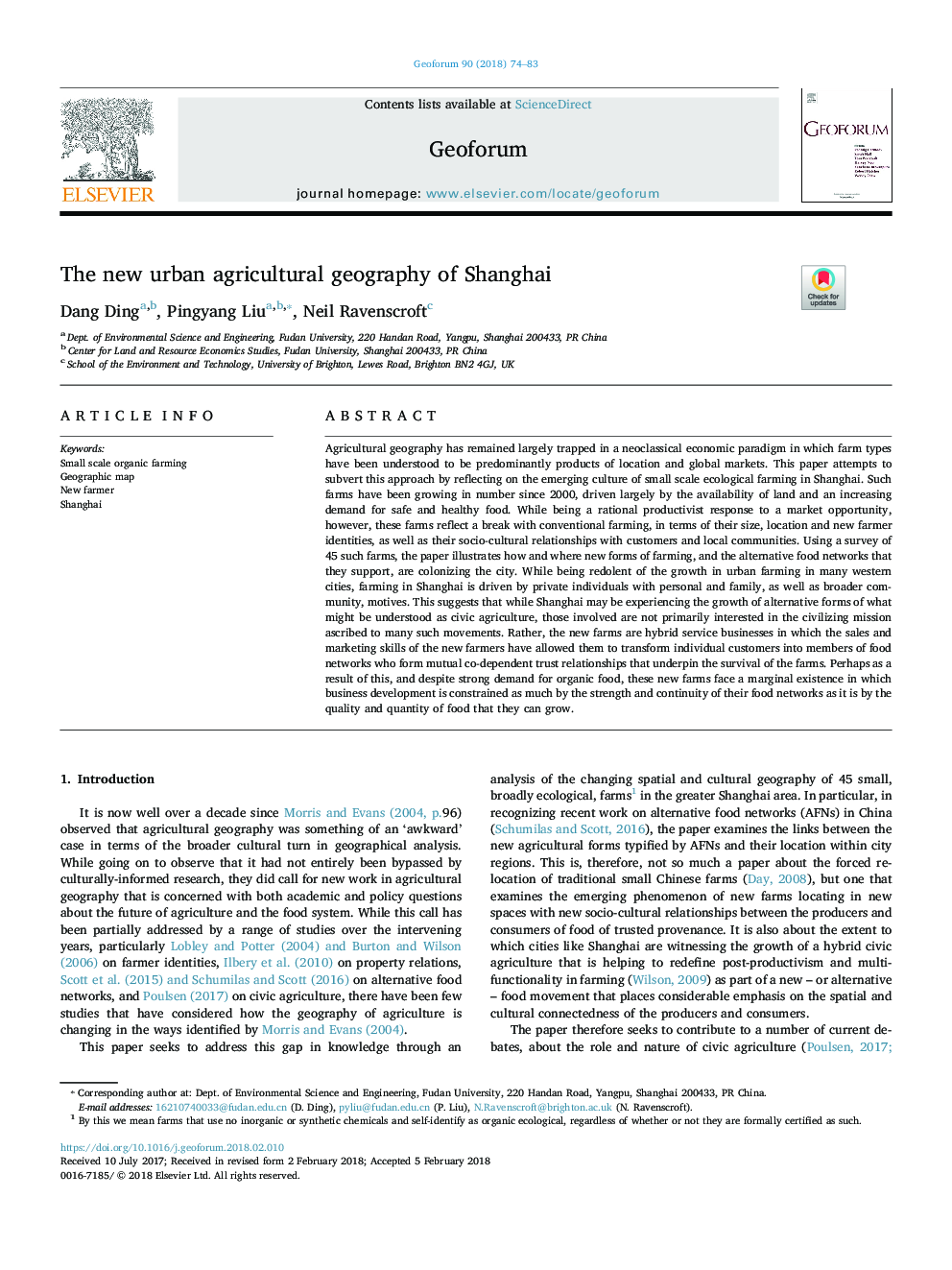| Article ID | Journal | Published Year | Pages | File Type |
|---|---|---|---|---|
| 7353729 | Geoforum | 2018 | 10 Pages |
Abstract
Agricultural geography has remained largely trapped in a neoclassical economic paradigm in which farm types have been understood to be predominantly products of location and global markets. This paper attempts to subvert this approach by reflecting on the emerging culture of small scale ecological farming in Shanghai. Such farms have been growing in number since 2000, driven largely by the availability of land and an increasing demand for safe and healthy food. While being a rational productivist response to a market opportunity, however, these farms reflect a break with conventional farming, in terms of their size, location and new farmer identities, as well as their socio-cultural relationships with customers and local communities. Using a survey of 45 such farms, the paper illustrates how and where new forms of farming, and the alternative food networks that they support, are colonizing the city. While being redolent of the growth in urban farming in many western cities, farming in Shanghai is driven by private individuals with personal and family, as well as broader community, motives. This suggests that while Shanghai may be experiencing the growth of alternative forms of what might be understood as civic agriculture, those involved are not primarily interested in the civilizing mission ascribed to many such movements. Rather, the new farms are hybrid service businesses in which the sales and marketing skills of the new farmers have allowed them to transform individual customers into members of food networks who form mutual co-dependent trust relationships that underpin the survival of the farms. Perhaps as a result of this, and despite strong demand for organic food, these new farms face a marginal existence in which business development is constrained as much by the strength and continuity of their food networks as it is by the quality and quantity of food that they can grow.
Keywords
Related Topics
Social Sciences and Humanities
Economics, Econometrics and Finance
Economics and Econometrics
Authors
Dang Ding, Pingyang Liu, Neil Ravenscroft,
